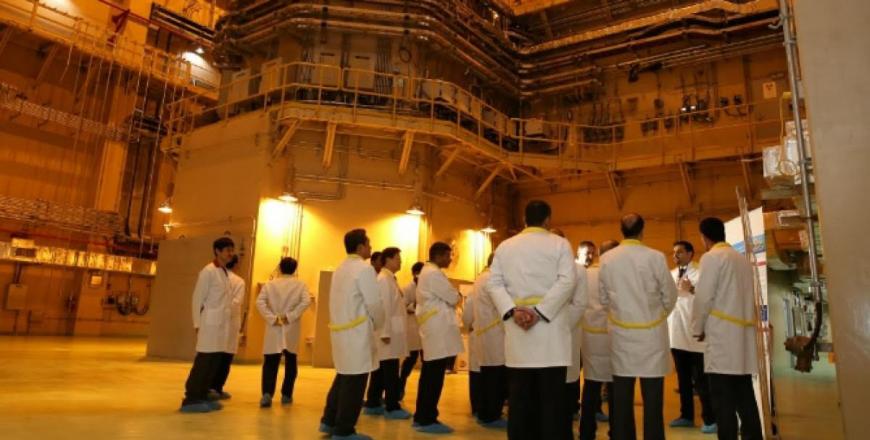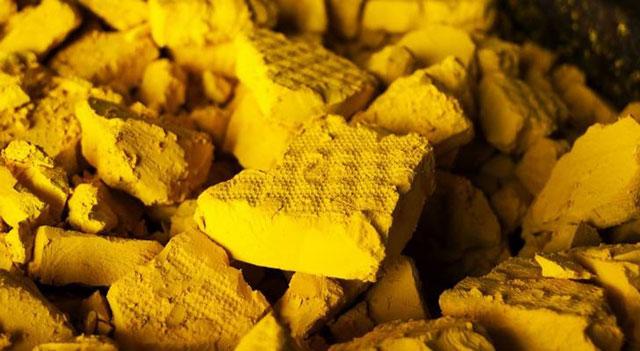You are here
Nuclear energy carries potential to build Kingdom’s future power needs — JAEC
By Artemis Sianni-Wedderburn - Jun 27,2022 - Last updated at Jun 27,2022

The Jordan Research and Training at the Jordan University of Science and Technology in Irbid (Photo courtesy of Jordan Atomic Energy Commission)
AMMAN — Nuclear energy has the potential to strengthen Jordan’s energy security, with fission reactions generating harvestable thermal energy that can be used peacefully for electricity and water desalination, according to a recent statement from the Jordan Atomic Energy Commission (JAEC).
Jordan’s royally backed Jordan Atomic Energy Commission (JAEC) project was established in 2008 to develop the Jordanian nuclear programme, according to the JAEC website.
It has the ability to provide a relevant source of safe and clean electric power alongside having a positive economic impact, according to the JAEC statement.
A senior JAEC official, in a recent interview with The Jordan Times, said that the Arab Spring showcased the global need to diversify energy.
Energy from “reliable local sources” will decrease dependence on external sources, the official added.
The official also noted that the JAEC plans to produce uranium, emphasising the use of the material in a manner that is peaceful, with the Jordanian Uranium Mining Company’s “pioneering” pilot plant becoming operational a month ago for the purpose of extracting uranium yellowcake from uranium ore.
By generating the proposed 200-400 MegaWatts (MW) of peaceful electricity, Jordan would set a regional example of nuclear power as a “clean, stable, secure source of energy”, said the official.
To make this happen, reactors are needed, the official stated, adding that other challenges facing nuclear energy include the lack of funding, alongside the lack of public awareness.
However, alongside electrical benefits, nuclear-related infrastructure can have a positive impact with regard to healthcare, education, the environment and employment, as “the sector will attract investment”, according to the official.
The building of Jordanian Research and Training Reactor (JRTR) involved more than 100 people, of whom “all are Jordanians”, according to the official. It is not a requirement to be a Jordanian, however, it is a “requirement for any country to utilise its resources”, they noted.
The nuclear isotopes produced at the JRTR are “crucial” to medicine and research, with the JRTR staying open during the Covid-19 lockdowns, as it was deemed an essential service, said the official, showcasing energy as a major commodity.
Additionally, environmentally speaking nuclear energy produces zero carbon dioxide (CO2) emissions, according to the official.
The nuclear engineering department at the Jordan University of Science and Technology (JUST) “cultivates diverse backgrounds and skills from a human resources perspective, driven by an investment in Jordanian youth, as well as in technology transfers for peaceful applications”, noted the official.
The “mega project” of building a reactor supports the job market during the construction phase, which requires up to five labour-intensive years, involving multiple engineers and sub-contractors.
It stands to “bring prosperity to the region and enhance its development”, the official said.
Related Articles
AMMAN — Experts estimate that the central region holds about 41,000 tonnes of yellowcake uranium, according to Nuclear Reactors Officer at t
AMMAN — The Jordan Atomic Energy Commission (JAEC) said Monday it scrapped a $10 billion deal with Russia to build the country’s first nucle
A Romanian delegation, headed by Romanian Agency for Nuclear Energy and Radioactive Waste Chairperson Alice-Mariana Dima, visited the Jordan Atomic Energy Commission (JAEC) on Tuesday.












